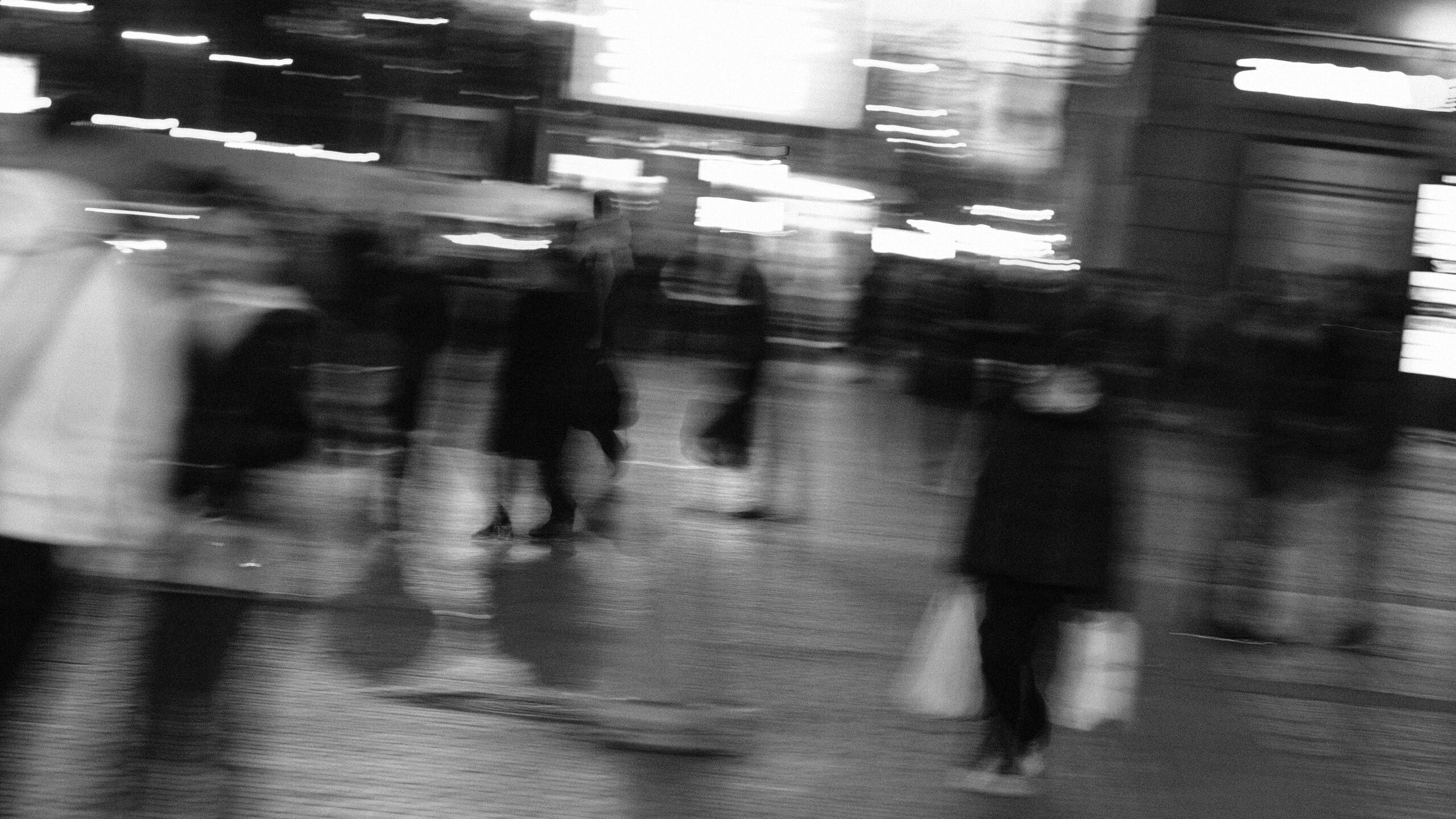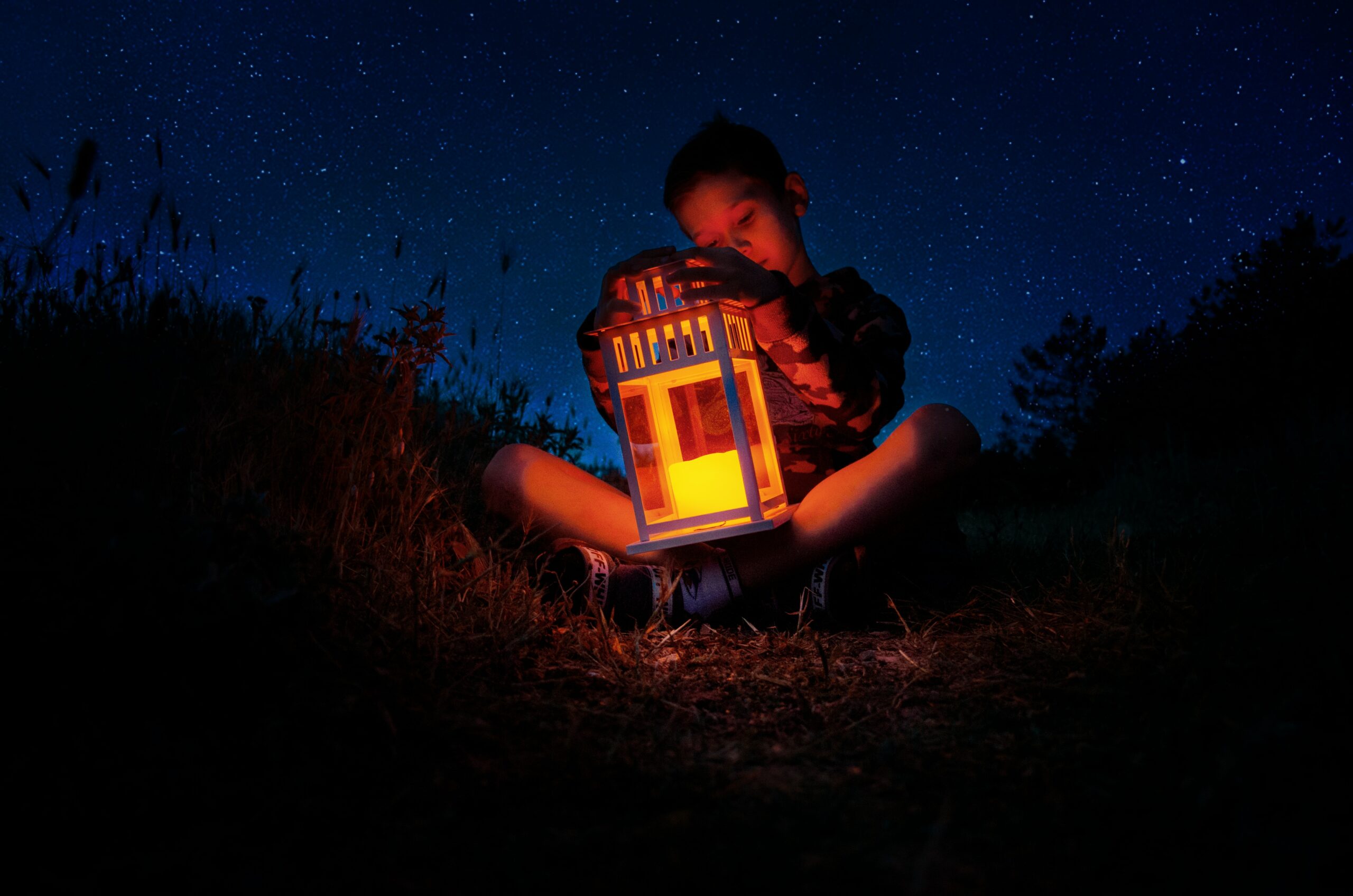Have you ever found yourself walking down a familiar street, only to suddenly feel as if you’re floating through a scene in a dream? It’s a weird sensation — everything seems familiar, yet oddly distant.
This fleeting moment, where the boundaries blur between reality and reverie, might leave you pausing to wonder if you’re truly awake. Moments like these might make you ask yourself (or google!) “Why do I feel like I’m in a dream?” To answer this question, I will share with you 8 possible reasons, rooted in psychology and spirituality.
So, whether you’re a curious soul seeking answers, or you often find yourself disconnected from reality, let’s explore this topic further.
Table of Contents
Why Do I Feel Like I’m In a Dream?
If you’re asking yourself the question that begins with “Why do I feel….?”, you’re probably not alone. On this matter, at least, you’re definitely not alone! Many individuals report having experiences where they feel like they are in a dream.
This can be a fairly complicated question, as it depends through which angle you look at it. It is psychology? consciousness? spirituality? Many different fields aim to answer why we have dream-like experiences in our waking life.
In order to explore some of the possible answers, I decided to focus on psychological and spiritual perspectives that may give insight into our waking dream state.
Psychological Perspectives
To answer your question of “Why do I feel like I’m in a dream”, let’s first dive into some of the psychological experiences that might explain this feeling. Psychological perspectives within psychology are various approaches and viewpoints used to understand, describe, and explain human behavior and mental processes.
These perspectives provide different lenses through which we can view and interpret individual behaviors, emotions, motivations, and overall human cognition. Each perspective emphasizes different factors and mechanisms, and they can often complement one another.
Here are some of the psychological perspectives that aim to explain why we might be feeling like we are in a dream:
Dissociation
Ever had one of those moments where you feel detached from your surroundings, almost like you’re observing yourself from the outside? That’s dissociation in a nutshell.
It’s like the mind’s unique way of hitting the ‘pause’ button, momentarily disconnecting us from our immediate environment or even from our very selves. Although it sounds like something out of a sci-fi novel, it’s a fairly common experience.
Dissociation can manifest in various ways. For some, it’s a brief spell where the world feels unreal. For others, it might involve losing track of time or feeling estranged from their body. These episodes can be spurred by numerous causes.
High-stress situations, trauma, or even a particularly overwhelming day can act as triggers. The mind, ever so protective, uses dissociation as a coping mechanism, creating a buffer from a situation it perceives as intense or harmful.
However, it’s essential to differentiate between occasional feelings of unreality and dissociative disorders. The latter are more prolonged, intense, and can significantly disrupt an individual’s day-to-day life.
Think of them as the mind’s safety net being overutilized, to the point where it might cause more harm than good. If these feelings become a frequent guest in your life, it’s crucial to reach out and seek professional guidance.
Remember, our brains have myriad ways of processing the world around us, and occasionally, they might take a detour into the dreamlike realm of dissociation. But, just like waking from a dream, with understanding and support, we can find our way back to the comforting embrace of reality.

Depersonalization and Derealization
Picture this: you’re going about your day, and suddenly, there’s a jarring sensation that you’re an outsider in your own body. It’s as if you’re watching a movie of your life but aren’t part of the cast.
This feeling, where you’re detached from yourself, is termed ‘depersonalization.’ On the flip side, ‘derealization’ is when the world around you feels odd and unfamiliar, almost as if it’s a backdrop on a stage rather than reality.
It’s a bit unnerving, right? Yet, these sensations, as surreal as they may seem, are quite real to those who experience them. Both depersonalization and derealization are forms of dissociative symptoms, but they put their unique spin on making reality feel a tad askew.
What triggers these experiences? A range of factors. Intense stress, trauma, or even substance use can lead the mind into this dreamlike state. Sometimes, it’s the brain’s way of coping, creating a slight distance from something it finds overwhelming.
While for many, these episodes are fleeting, for others, they can persist, leading to what’s known as depersonalization/derealization disorder.
If you ever find yourself floating through such moments, know that grounding techniques, like focusing on your breath or touching an object, can help tether you back to reality. And if these feelings linger or start hampering your daily life, it’s always a good idea to chat with a professional. They can offer insights, coping mechanisms, and treatments to help navigate these murky waters.
Suggested article: “5 Grounding Techniques For Managing Survival Mode”
In essence, our minds have such a vast landscape that sometimes we might feel lost within it. But with understanding, patience, and a touch of support, we can find our way back to the familiar shores of reality.
Alteration in Perception Due to Fatigue or Sleep Deprivation
Have you ever pulled an all-nighter and then felt the next day was wrapped in a foggy haze? It’s almost like walking through a dream, with every step feeling slightly out of sync. That’s the peculiar power of sleep – or, more accurately, the lack of it – on our perception.
When we skimp on those precious hours of rest, it doesn’t just result in droopy eyes or a yawning marathon; it plays tricks on our mind.
Sleep is our brain’s time to recharge, consolidate memories, and, of course, venture into the realm of dreams during REM (Rapid Eye Movement) sleep. But when we miss out on adequate slumber, the line between dreaming and wakefulness can blur. This “dreamy” state while we’re awake? It’s our brain’s cry for help, signaling it’s running on fumes.
Sleep deprivation can muddle our cognitive processes. Simple tasks become herculean, conversations might seem distant, and reality can feel, well, a bit off. It’s akin to wearing a pair of glasses with the wrong prescription; everything’s there, but it’s just not crystal clear.
Now, while the occasional sleepless night might give us a glimpse into this altered state, it’s crucial to not make it a habit. Consistently missing out on sleep doesn’t just lead to these dreamlike days, but it can also have long-term effects on our health.
If you ever find yourself floating through the day, and the night before was a restless one, it’s probably a sign to hit the bed early and catch up on those Zzzs. Because while it’s fascinating to wander in the land of dreams while awake, there’s nothing quite like the clarity and rejuvenation a good night’s sleep brings.

Influence of Drugs and Medications
Imagine sipping on a cup of coffee, feeling the world become sharper, more vibrant. Or perhaps, after taking prescribed medication, you notice the world drifts into a soft, surreal haze. Both scenarios underscore an intriguing truth: substances, whether they’re our daily caffeine fix or specific medications, have the power to paint our reality in different hues.
Drugs, both recreational and prescription, can significantly shift our perception. Some might intensify colors, sounds, or emotions, making the world seem hyper-real. Others might create a buffer, where everything feels distant, like observing life through a smudged windowpane.
Take, for instance, hallucinogens. These can catapult users into an entirely different realm, where reality intertwines with fantasy. On the other hand, some medications, especially those affecting the central nervous system, can make users feel detached or dreamlike as a side effect.
It’s essential to understand that these alterations in perception aren’t merely “in our heads.” The substances we ingest directly interact with our brain chemistry, tweaking the delicate balance of neurotransmitters and neural pathways.
This interaction is what leads to those dreamy states, euphoric highs, or even profound introspection.
But here’s a friendly reminder: while it’s fascinating to explore altered states of consciousness, it’s crucial to tread with caution. Not all substances play nicely with our brain, and what might seem like a brief escape can sometimes lead to long-term consequences.
Always be aware of what you’re introducing into your system and its potential effects. And if a prescribed medication is making you feel consistently off-kilter, it might be time for a chat with your healthcare provider.
In the vast tapestry of experiences, drugs and medications add their unique threads. But, as with all things, balance and awareness are key to ensuring the picture remains harmonious.
Spiritual Perspectives
Spiritual perspectives encompass the varied ways in which individuals, cultures, and religions perceive, interpret, and relate to the unseen, transcendent, or sacred aspects of existence.
These perspectives often delve into questions about the purpose of life, the nature of the soul, the existence of a higher power or divine force, and the connections between the individual and the larger universe.
While these viewpoints can be deeply personal, they are also shaped by cultural, religious, and philosophical teachings. Below you can see how some of the spiritual perspectives try to answer the question of “Why do i feel like I’m in a dream?”
Want become an Inner Researcher and dive deeper into yourself? Check out my online class “Journaling For Self-Reflection: A Simple 3 Question Practice.”
Astral Projection and Out-of-Body Experiences
Ever dreamt of soaring above the treetops, looking down at the world from a bird’s eye view, feeling both liberated and amazed? Now, what if that wasn’t just a dream but an actual experience where your consciousness separated from your physical body?
Sounds like a plot from a fantasy novel, right? Yet, for many, this isn’t fiction but a genuine spiritual experience known as astral projection or an out-of-body experience (OBE).
Astral projection is often described as the conscious spirit or astral body journeying outside of its physical counterpart. This ethereal double can traverse not just the earthly realm but also different astral planes, some radiant and heavenly, others mysterious and uncharted.
On the other hand, OBEs, while similar, are typically spontaneous and can be triggered by various factors like near-death experiences, intense meditation, or even during sleep.
During an OBE, individuals might feel they are floating above their body, observing themselves and their surroundings from an external vantage point.
What’s fascinating is that these experiences, as surreal as they sound, have been reported across cultures and ages. They’ve been referenced in ancient texts, mystical traditions, and even by modern-day spiritual explorers. Many who’ve ventured on these journeys describe profound insights, heightened connectedness, and a broader understanding of the universe’s vast tapestry.
While the scientific world continues to debate and investigate the nature of these experiences, those who’ve had them often find them deeply transformative. If you ever find yourself curious or even on the brink of such a journey, remember to approach it with an open heart and mind.
Because in the vast realm of spiritual experiences, astral projection and OBEs offer a unique perspective, bridging the known with the wondrous unknown.

The Concept of Maya (Illusion) in Eastern Philosophy
You know those moments when the world feels a tad unreal, as if you’re walking through a dream? Interestingly, this sentiment finds resonance in ancient Eastern philosophies, especially in the concept of ‘Maya.’
Rooted in Hindu and Buddhist teachings, Maya isn’t just about the world being an ‘illusion’ in a straightforward sense. It suggests that our day-to-day experiences, emotions, and even our perceptions might be enveloped in a kind of cosmic veil, making them seem transient and dreamlike.
Now, how does this tie into the feeling like you’re in a dream? Well, if our reality, as per the concept of Maya, is but a temporary play of cosmic forces, then that occasional feeling of everything being dreamlike might just be a glimpse into a deeper truth.
It’s a momentary awareness that the world, with all its solidity and tangibility, might not be as fixed as it appears.
But, understanding Maya isn’t about negating or diminishing our experiences. It’s more about recognizing that there’s a deeper layer of existence beneath our immediate perceptions. Those fleeting feelings of living in a dream could be spontaneous moments of insight, a brief lifting of the veil, reminding us of the impermanent and ever-changing nature of life.
So, the next time you feel like you’re drifting through a dream, it might be worth pondering on the concept of Maya. Perhaps, it’s not just your mind playing tricks but an invitation to delve deeper, to explore the boundaries between the tangible and the intangible, the real and the dreamlike.
The Interconnectedness of All Things
You know those moments when everything seems strangely interwoven, like you’re in a dream where every detail, no matter how small, holds significance? This feeling, this sense that everything is mysteriously linked, echoes a timeless spiritual principle: the interconnectedness of all things.
Many spiritual traditions around the world emphasize that everything in the universe, from the distant stars to our fleeting thoughts, is intimately connected. It’s as if we’re all part of a vast cosmic web, where each strand vibrates in harmony with the others.
But wait… how does this answer the question that you just googled; “Why do i feel like I”m in a dream?”
Well, when we deeply sense this interconnectedness, our usual perception of reality can shift. The clear boundaries between self and others, between one moment and the next, might blur. We may feel as if we’re floating in a vast sea of connections, where time slows down, and everything holds deeper meaning. This can make our waking life feel dreamy, fluid, and profoundly symbolic.
It’s not just about feeling one with the Universe but also about experiencing life in a more holistic, unified manner. These fleeting moments of interconnected awareness can make us feel like we’re living in a dream, where the line between the individual and the cosmos becomes beautifully indistinct.
So, the next time life feels like a dream, consider that you might be tapping into this ancient understanding of interconnectedness. It’s a reminder that beneath the surface of our daily experiences lies a world rich with connections, waiting to be explored and appreciated.

Living in the “Now”: The Power of Present Moment Awareness
Do you remember the last time you felt the warmth of the sun on your skin, listened to the rhythmic patter of rain, or simply savored a delicious bite without any distractions? These moments, rooted deeply in the present, hold a magic of their own.
This is the essence of living in the “now.” By immersing ourselves fully in the present moment, our perception of reality can shift in intriguing ways, making everyday experiences feel surreal and dreamy.
Being truly present means letting go of past regrets and future anxieties, allowing ourselves to dive deep into the current moment. When we do this, the cacophony of life often softens, giving way to a profound stillness.
It’s in this stillness that the boundaries of our reality can become fluid, and everything feels interconnected and timeless, much like in a dream.
But why does being present evoke such a dream like state? It’s because, in the “now,” we’re accessing a raw, unfiltered version of reality. Stripped of our usual distractions and preoccupations, we experience life in its purest form, where even the simplest things—a leaf fluttering in the wind, the sound of distant laughter—can take on a deep significance and beauty.
Embracing the power of the present moment isn’t just about mindfulness or meditation; it’s about recognizing and celebrating the magic that exists right here, right now.
So, if you ever feel like you’re drifting through a dream while wide awake, it might be a sign that you’re truly connected with the present. And in this connection lies the opportunity to see the world with fresh, wonder-filled eyes, where every moment is a gift, teeming with possibility.
Conclusion
Life, with its vast array of experiences and sensations, often leaves us in wonder (or confusion?!). Whether we’re feeling the surreal touch of a dream while wide awake or pondering the deeper threads connecting all of existence, there’s no denying that our journey is rich and multifaceted.
Through the lens of psychology, we’ve explored how our minds, in their infinite complexity, can blur the lines between reality and dreamscape. Simultaneously, spiritual perspectives offer insights into the profound interconnectedness and timeless essence that lies just beyond our everyday awareness.
If you’re wondering about a dream like state from curiosity, I hope these perspectives offered some food for thought. However, if you find yourself wondering if you may be dealing with dissociation due to trauma or stress – I highly recommend speaking to a professional.
For years, I wasn’t aware that I was dissociating in moments of stress. It was a trauma-response and the detachment from reality was that would help me feel safe. It wasn’t until I went to therapy that I realised this was dissociation and I began diving deeper into when and why this would happen.
So – if you suspect this might be the case with you, too, please reach out to a professional that could help!
